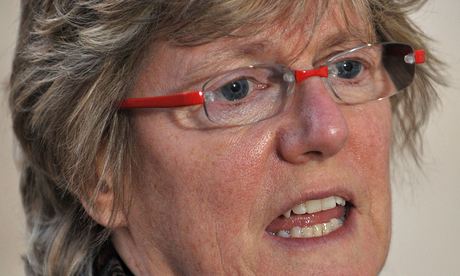
The health secretary, Jeremy Hunt, asked the chief medical officer to commission expert reviews of three homeopathic remedy studies carried out by a commercial French company – in spite of the CMO's publicly expressed belief that homeopathy is "rubbish".
Dame Sally Davies, the CMO, has categorically dismissed homeopathy as a waste of time and money. "I am perpetually surprised that homeopathy is available on the NHS," she told the Commons science and technology committee in January 2013.
Yet Hunt, who expressed support for homeopathy in 2007 before he joined the Department of Health, asked Davies to initiate reviews of three studies carried out by the French company Boiron, which have already been dismissed by scientific critics.
Boiron has run into legal difficulties in the US in recent years. In 2012, it set aside $5m to refund consumers who bought certain homeopathic products. Expert witnesses argued that the "active ingredients" were neither active nor ingredients.
Homeopathic remedies are dilutions of substances to such a high degree that the original ingredient is undetectable.
Hunt's action followed lobbying from the strongly pro-homeopathy Tory MP David Tredinnick. The health secretary's intervention was revealed through a Freedom of Information request by the website BuzzFeed.
In a letter to Tredinnick, Hunt thanked the MP for drawing his attention to the studies and said: "It is important we do not discount different methods of treatment if they prove to be effective and I asked the CMO to have them reviewed. The studies have now been assessed by two senior researchers with expertise in research design and experience of research in complementary therapies."
The letter, drafted for Hunt, showed that the researchers found the studies did not offer evidence of the efficacy of homeopathy. Two of the studies were "well-designed, with robust results" but were essentially descriptive studies, that is, that they did not test one remedy against another or against a placebo, as would happen in a clinical trial.
The third study compared two group of patients with musculoskeletal disorders, such as back strains and sprains. One group was treated by GPs using homeopathy and the other by GPs using conventional means. "Drawing any firm conclusions is difficult because of the relatively low response rate at 12 months and in particular the lack of randomisation, which means that the results may have been produced by differences between patient groups that have not been taken into account," the reviewers had found.
Hunt, however, said he was willing to carry on the discussion. "I am of course happy to put any counterpoints or further studies you may have to the reviewers for further consideration," he told Tredinnick in his letter.
Hunt signed an early day motion welcoming the availability of homeopathy on the NHS in 2007, but a source close to the health secretary said on Thursday: "Jeremy is not a supporter of homeopathy and is not persuaded that there is any scientific evidence that it works."
Jamie Reed, a shadow health minister, said patients and medics would be dismayed but not surprised to learn that Hunt had "wasted time and money" on investigating studies into homeopathy.
He added: "The government's own NHS Choices website states that the evidence for homeopathy is 'scientifically implausible' but this doesn't appear to be enough for the error-prone health secretary. As his policies continue to damage the NHS, I hope he hasn't ordered an investigation into the use of leeches."
Edzard Ernst, emeritus professor at Exeter University and a critic of homeopathy, said there was already evidence in the public domain relating to Boiron's studies. "I have repeatedly commented on the dismal quality and misleading conclusions of Boiron-sponsored research on my blog," he said. "We have to ask why someone in a position like Hunt ignores all these facts and takes such extraordinary action."
The study comparing patients treated by GPs with different methods found less medication in the homeopathy group. It was, Ernst said, "a self-fulfilling prophecy, like finding that a lot of people in Macdonalds eat meat".
He said he was amazed that Hunt had offered to refer any further evidence from Tredinnick back to the reviewers. "He is actually offering further assistance; he therefore is much more than a 'conduit'. [That's] quite unbelievable – officially, he had renounced his enthusiasm for homeopathy."
The campaign group Sense About Science said Tredinnick had already raised the studies with them, at a hearing of the science and technology committee in May last year. "He already knows about the limitations of these studies," said the campaigns director, Sile Lane. "It is a disingenuous request. This is single-study campaigning – if the pharmaceutical industry did this, people's reaction would be, rightly, indignant."

